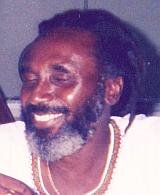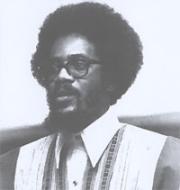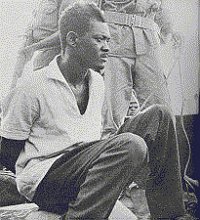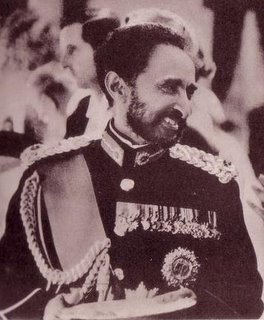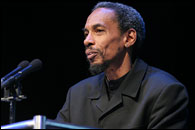CANNES BRULLES

the culture of resistance to

SLAVERY, INDENTURESHIP & COLONIALISATION


in Trinidad & Tobago

inherited from ancient traditions
of the
DJED FESTIVAL
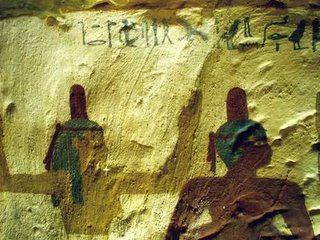
of ancient EGYPT
Dr Eric Doumerc on Roi Kwabena's poetry
" Roi's poetry addresses Caribbean, pan-Caribbean and global issues while remaining steeped in that tradition. All this appears in the interview I conducted with him and which is printed below. Most of the poems discussed in the interview appeared in Roi's Whether or Not (Raka Publications, 2000).Roi Kwabena's Whether or Not is an important collection of poems by a writer who is really committed to the word in performance and to his place of birth. Roi's commitment to the oral tradition appears in the poem entitled "New Age Bois Warrior" with the powerful Chalkdust quote "to hell with de law, ah declaring war". In this poem, the "bois fighters" (stick fighters), "jammettes" and "obeah doctors" all come to life in a rich tapestry of sound. Poetry as sounded word defines Kwabena's art, as shown by the lines "ah go lead de argument / like dem debating group of barrack yard an' pon rose hill". The poet invokes the "heritage" of "bongo, calenda an' cannes brûlées", thus referring to the early history of the Trinidad carnival when the songs of defiance (the "calendas" or "kalindas") were sung by gang leaders before the proper stick fight began.
In the poem entitled "Cascadura", the heritage of "steel drums", "carnival parade" and "bottle Ôn spoon" brings to mind Carinival days and the joy of release.
Poems like "westindia", "geological wonder" and "Cascadura" are proof that the poet is still committed to the Caribbean and to his birth place, Trinidad. The poem entitled "westindia", with its telling lower case, testifies to the power of NAMING in Caribbean cultures as the poet re-names the islands which were given the names of Christian saints by European colonial powers like Spain. This poem is the occasion for Kwabena to reclaim the distant Amerindian past and heritage as his own :
—"look. . . ,
we reclaim
ataitij
xaymaca"
In this piece, the poet assumes a priest-like, a shaman-like function and reclaims his land and heritage:
"ayay
wadadli
liamaiga
aloi
yuluma
playground of
julica
our rainbow"
The Amerindian place-names and other cultural/historical refrences are conveniently explained in a glossary at the back of the book, which shows that Kwabena is also an educator, a teacher.Roi Kwabena's poetry also shows his pan-Caribbean consciousness, as is shown by the poems "email" and "keep hope alive", about the eruption of the Soufrière volcano on Monserrat in 1995. The poet is thus fully aware of events taking place in the wider Caribbean (as is shown by the poem "Hang Man" with its lines about the state of prisons in "trinidad, barbados, jamaica or grenada"), but he also assesses the current situation in his native Trinidad in "whether or not". This poem contains the haunting refrain "we still thinkin' about yuh" and alludes to racial tension and the wave of crime which seems to have engulfed the island. These problems are also hinted at in "Cascadura" with its line about "muslim brothers guarding their border". Nevertheless, the poet remains optimistic and convinced that racial harmony and social peace will come eventually.
Lastly, the poet is also aware of North/South inequalities and contrasts. Indeed, the poems entitled "Forgive us our debts" and "Apparitions" are two moving pieces about the plight of the so-called Third World. The link between past exploitation and present poverty is painfully made explicit in these lines :
-"the genocide. . .
the chattel slavery. . . .
the indentureship. . . .
the religious conversion . . .
the plunder of our antiquities . . .
the economic deprivation. . . .
the scientific exclusion. . . .
could we expect
our debts to be forgiven
so that we may feed our people".
Thus, Roi Kwabena's poetry is thoroughly Caribbean and universal at the same time as it addresses concerns which are specific to the West Indies but also branches out into many other areas. Professor Stewart Borwn of the University of Birmingham, UK, wrote that for Roi Kwabena, the poem seems to be "an agent of dialogue" which is supposed to encourage his readers to "debate among themselves". Roi's poetry certainly achieves that aim, but it also makes readers aware of the beauty and power of the Caribbean oral tradition and of Caribbean/Trinidadian English.

"It was the now deceased anthropologist Dr J.D. Elder who first made me aware of the originality of Kalenda (stick fighting), Bongo, Carnival & Kaiso. Further reading led me to the works of also deceased anthropologists Andrew Carr and Andrew Pearce, who were among the first to conduct vital field research on these traditions.Our children need to be told of the efforts of those chanting stick-fighters, drummers (the drum is still banned by archaic European laws retained in the so-called colonies to this day), even those women whose heroic organising planted the seeds for the trade-union movements, tamboo-bamboo players whose inventiveness led to the steel pan (the greatest musical invention for the 21st Century), played all over the world yet to be included on my country's education curriculum), forgotten reformers who bled for a nationalism which is forsaken today.
From a musical point of view, our Kaiso has grown and gave birth to calypso, soca ragga, and chutney (the latter with the influence of Asians).But sensible lyrics have been banished. Even double-entendre, humour and messages have disappeared, so that today only synthesisers, electronically programmed rhythms, gyrating waists and waving a sweat-soaked rag are in vogue (very much reminiscent of the old days when the French bourgeois waved their handkerchiefs in such like processions. So yes, these aspects of my culture do give me energy to continue writing..... "
Roi Kwabena in response
to a question from Dr Eric Doumerc
